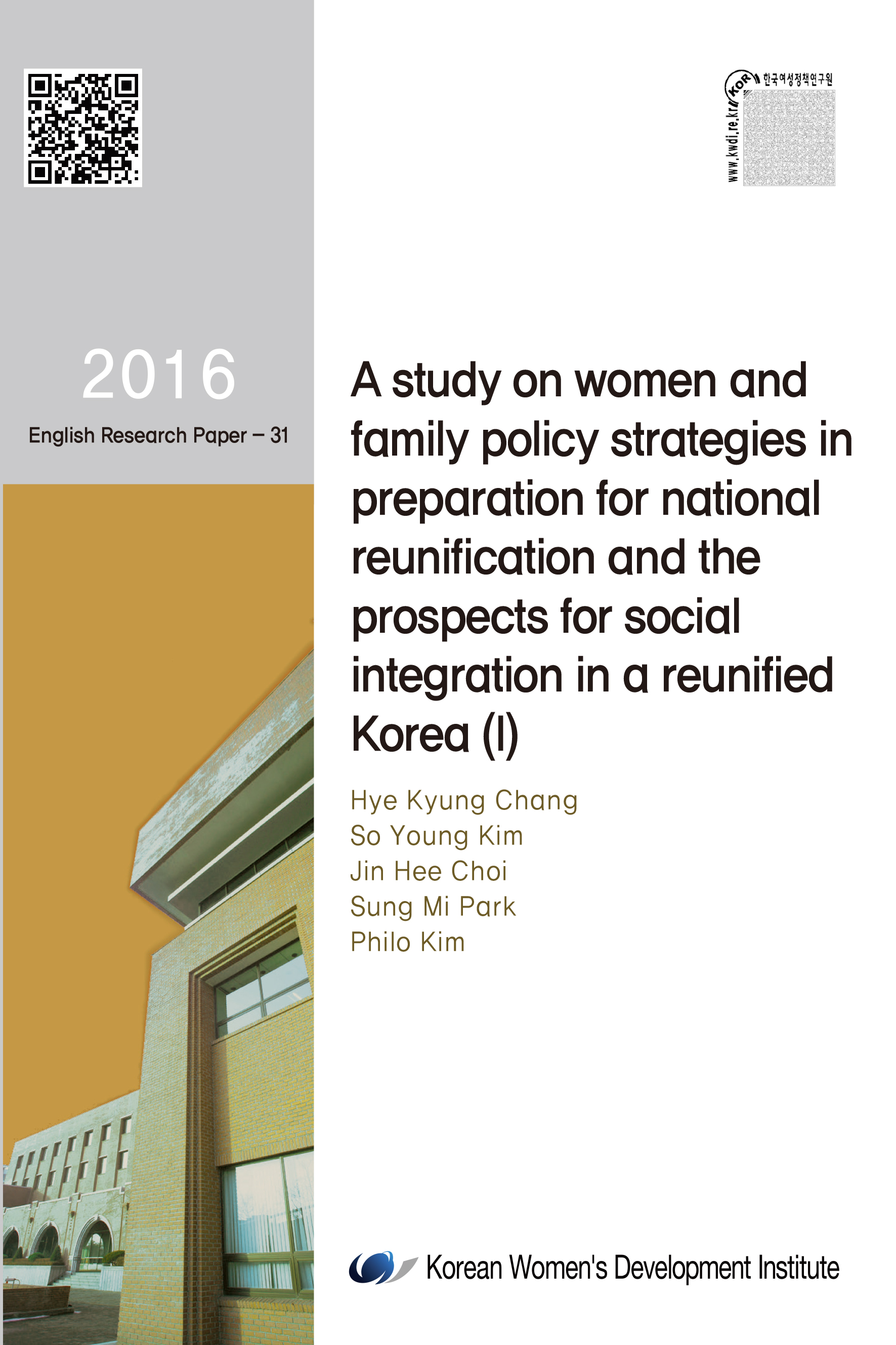Abstract
| A study on women and family policy strategies in preparation for national reunification and the prospects for social integration in a reunified Korea (I) | |||
|---|---|---|---|
| Type | Basic | Period | 2015 |
| Manager | Hye-kyung Chang | Date | 2016-01-05 |
| Fiie | 31.jpg ( 1.29 MB ) | ||
|
This study aims to set directions and identify tasks for women and family policy in the context of national reunification by making an in-depth analysis of five key areas in women and family policy relevant to social integration in reunified Korea. Based on a detailed account of the concept, value and direction of social integration, the five areas are discussed taking into account social integration, heterogeneity, post-reunification policy environment and other key issues and challenges pertaining to national reunification and their policy implications. Consideration is also given to the situations of both Koreas, North Korean defectors and the case of German reunification. The five areas are: (1) prospects for changes in women’s political/social status and policy for women; (2) integration of family and family culture between the two Koreas in preparation for reunification; (3) labor market, employment of women and work-family balance; (4) health policy for women and children; and (5) care service as a foundation task for social integration. Different research methodologies are employed for the five areas, including literature review, analysis of statistical data, in-depth interviews, general and expert surveys, scenario technique, expert consultation, expert forum and overseas case study. Directions for women and family policy in the context of national reunification, proposed based on the research results, are as follows: 1) establishing gender-sensitive perspectives; 2) laying practical foundation for integration that can reduce disparities between the South and the North in regards to women and family; and 3) taking a gradual and pluralistic approach to the integration of women and family policy. Policy tasks are proposed, depending on their focus, for three different categories: the tasks in preparation for reunification, the urgent tasks right after reunification, and the mid- and long-term tasks for reunified Korea. Tasks in preparation for reunification focus on refining current policies, replenishing existing infrastructure and greater preparedness in the South Korean society. The tasks include substantializing women and family policy for North Korean defectors, replenishing women and family policy infrastructure in South Korea, reviewing basic laws concerning women and family in the context of national reunification and a greater role of South Korean municipalities on matters concerning women and family policy. Tasks right after reunification are characterized by the provision of urgent aid to vulnerable groups in North Korea and concentration of South Korea’s administrative capacity on the North. The tasks include providing urgent aid to vulnerable groups and concentrating administrative capacity through public-private collaboration. Tasks for reunified Korea emphasize establishing new mid- to long-term policy and infrastructure and mutually shared growth in which the South supports the growth of the North. The suggested tasks include forming a Women and Family Committee for Unified Korea (a tentative name) as a control tower for mid- to long-term policy implementation, building women and family policy infrastructure for reunified Korea, integrating legislations concerning gender equality between the South and the North (Unified Korea Gender Equality Act (a tentative name)) and nurturing administrative capacity of reunified Korea in regards to women and family policy. |
|||
